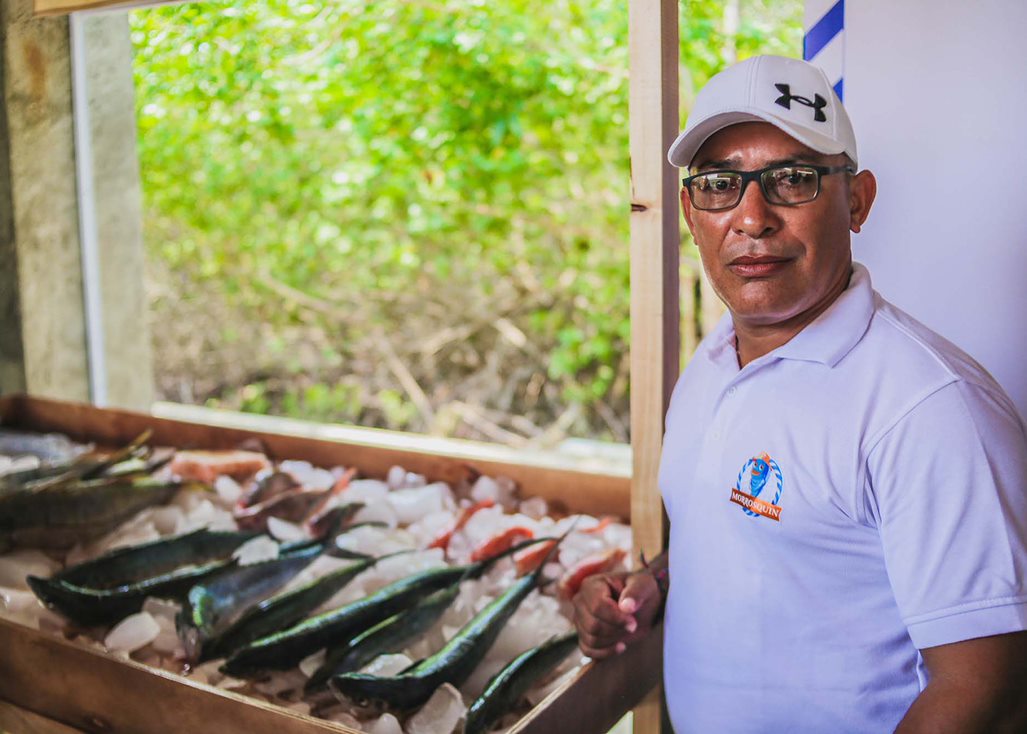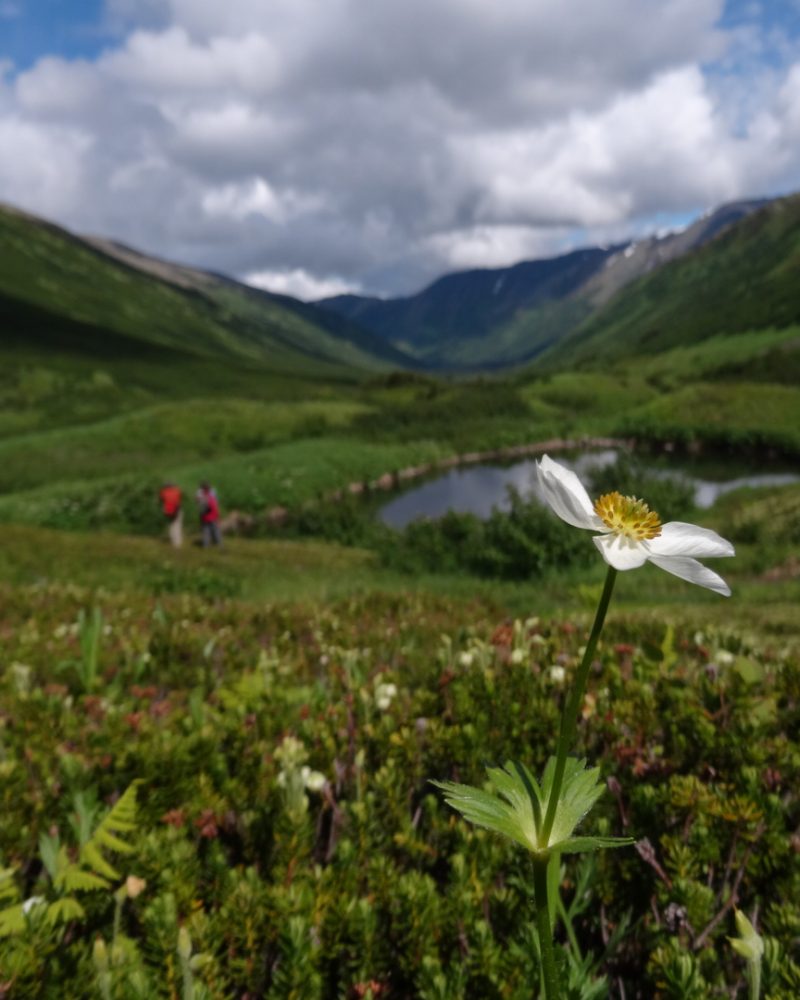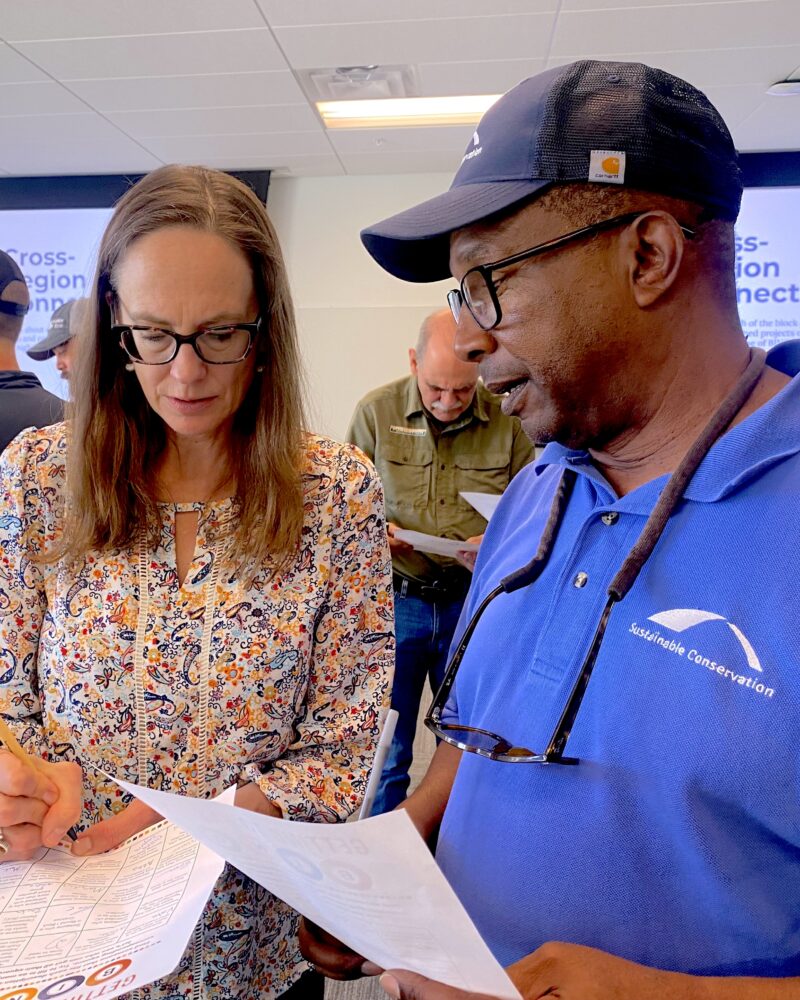In this blog EI’s Katherine Connolly sat down with Luca Crudeli, our partner from ACDI/VOCA to have a conversation about locally led development and systems thinking. A global leader in market systems development, ACDI/VOCA has supported communities to sustainably improve key economic sectors through program design and implementation across the public and private sectors. As a Market Systems Senior Technical Director, Luca is currently working to extend the use of systems thinking to sustainable growth in the marine and maritime sectors.
Katherine: EI and ACDI/VOCA have a lot in common when it comes to supporting project designs and adaptive management that includes local stakeholders. What approach does ACDI/VOCA use to achieve sustainable and locally driven solutions?
Luca: We take a lot of approaches to advance locally led development—ACDI/VOCA has a history of working with agricultural cooperative movements around the world, meaning mobilizing communities and activating collective action is really part of our DNA. Something we’re currently working on that I find particularly innovative and exciting is updating our market systems diagnostic tool to support locally led development and natural resource management.
A diagnostic might not be the first thing that comes to mind when we talk about localization, but it has real power to support sustainable, locally owned solutions. The market system diagnostic looks at the market structure and how it influences behaviors—without local leadership and engagement, it’s simply ineffective. We use the diagnostic at the beginning of program design, and we continue to engage during the whole life of the project. The tool is adapted to local languages, and community members lead priority setting. Next, through continuous engagement, community members describe and validate their perspectives on the market systems they interact with and develop a vision for a pathway for change that they are ultimately in charge of implementing.
This tool is one aspect of moving towards sustainable and locally driven solutions. The signature element of our work is using systems thinking to manage complexity in natural resource management and other complex challenges. If we want genuinely sustainable solutions to so-called “wicked” problems, we need to understand and work at the nexus of socioeconomic and ecological challenges and, importantly, support local leaders to drive that change.
Katherine: That really resonates with our work, the success of so many of our projects hinges on starting with a common, community-owned vision and definition of success. It reminds me of EI’s support to the Andean Water Funds Platform via our partnership with Fundación Futuro Latinoamericano (FFLA). EI supported the locally owned water funds to co-create a shared Theory of Change visualized through a Results Chain model. Or in other words, the community led funds defined their vision of success and how to measure and course correct along the way.
Luca: That actually speaks to another aspect of localization we’re working on—specifically moving away from jargon and going back to basic principles. Jargon is natural in a competitive environment; companies make their own terminology to differentiate themselves, but that also muddies the waters and can make it difficult for new partners to get involved.
The market system diagnostic, is a broad tool trying to take a structural analysis of the market. As we engage iteratively with communities, we collaboratively build the stories of change that they want to see. We’re assessing what we can change and what the root causes are. By identifying these real leverage points, we can go back to the community to validate a shared vision for change. In Mozambique, for example, working with the local and central government, we will undertake a comprehensive participative structural analysis of Coastal Zambezia’s socioecological system. This involves collaborating with local communities and stakeholders to identify leverage points that align socioeconomic practices with environmental conservation.

Photo by Luca Crudeli. For more of Luca’s photography check out his Instagram page here.
Katherine: Getting to clear language and collective storytelling is no small task. It also makes me think about how to then share stories and lessons learned with broader communities, practitioners, sectors etc. Is building knowledge and learning networks a feature of your work in strengthening local livelihoods?
Luca: Of course. And just to note, one of the benefits of working with USAID is that in the world of international funders, USAID is a very consultative donor. They want to advance their thinking in certain areas with implementers. So, on the funding side we are very active participants in learning networks.
Knowledge networks are critical in market systems work. One of the objectives of market systems strengthening is to have the market actors collaborate to generate value, as they define it. So, knowledge networks can be key for creating that collaboration space. We run a number of networks either directly through or adjacent to our projects. Across all of the networks the goal is to build community and capacity for broader collaboration.
And then part of understanding a market is understanding where information and knowledge comes from and how it gets transmitted. So, for example in a local radio station can play a significant role in advancing knowledge and supporting a project. They can get closer to audiences to understand their problems, create content to address those problems, and then become a voice for those audiences. We’ve seen that work well when local radio conducts investigative broadcasting to help with enforcement.
So, across all levels, from donors, to ecosystems, to local communities, we’re thinking about how information is generated and shared and then structurally how the information flows.
Katherine: I think that’s a really valuable insight—often the key to making a learning network succeed is focusing on building the sense of community and space for collaboration. And in the spirit of collaboration, thank you so much for your time and for sharing a bit about your expertise. I look forward to hearing more from ACDI/VOCA’s leadership in market systems.
Lead photo of fisherman in Morrosquillo, Colombia, courtesy of FAVLA, Fundación ACDI/VOCA Latin America.



